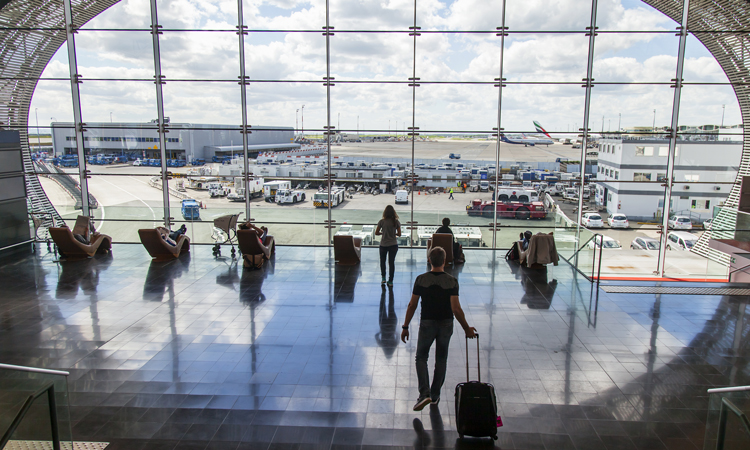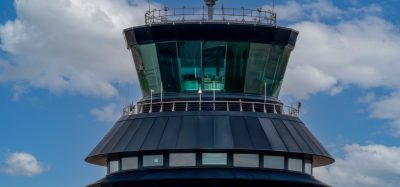Charles de Gaulle Airport joins EASA COVID-19 monitoring programme
Posted: 10 June 2020 | International Airport Review | No comments yet
Charles de Gaulle Airport is among 10 other aviation stakeholders to join EASA’s programme to assess the effectiveness of its COVID-19 safety measures.


Paris-Charles de Gaulle Airport (CDG) is joining 10 other aviation stakeholders to abide by European Union Aviation Safety Agency (EASA) and European Center for Disease Prevention and Control (ECDC) COVID-19 guidelines.
These measures, largely implemented at Charles de Gaulle Airport since early May 2020, helped the EASA and ECDC to establish a pragmatic and comprehensive list of recommendations, aiming at ensuring health and safety standards for air passengers and aircraft/airport operators during the COVID-19 pandemic – among which can be found: ensuring social distancing throughout the entire journey; the reinforcement of cleaning and disinfection protocols; mandatory wearing of facial coverings; and practising all hygiene recommendations, etc.
To monitor the implementation of those measures, the EASA launched a dedicated programme. The aim is to assess real-life situations concerned by EASA recommendations and to contribute to establishing a new sanitary standard at a European level, but also worldwide. The psychological dimension and the perception of those measures by the passengers will also be examined in this analysis.
Join us live: Shaping the Next Generation of Hold Baggage and Air Cargo Screening
Join us live for an insightful webinar on 11th December at 14:00 GMT, in collaboration with Smiths Detection, as we explore the strategic balance of operational efficiency, regulatory compliance, and sustainability in high-volume security environments.
This session offers a focused look into future-proofing your security strategy.
Key learning points
- Cost Reduction: Strategies to minimize bag travel time while simultaneously reducing operational costs.
- Regulatory Roadmap: Insights into the next wave of regulatory changes and their impact on future investment decisions.
- Sustainable Systems: Practical approaches to building sustainability into security systems and lowering the total cost of ownership (TCO).
- Scalable Solutions: Real-world examples of scalable systems supporting current airport growth and preparing for tomorrow.
Register now for expert insights, case studies, and actionable strategies on operational efficiency!
To this end, Paris-Charles de Gaulle Airport is joining forces with airlines – such as easyJet on Nice and Toulouse routes, and Wizzair on Budapest routes – as well as Groupe ADP (who are also collaborating with Air France) to implement sanitary measures aligned with EASA recommendations in order to offer the best security standard.
In addition, since 28 May 2020, three ‘sanitary corridor’ test flights have been carried out between Paris and Reunion Island, where passengers must comply with a 14-day quarantine. Those experimentations involve the two airports, as well as airline partners – Air Austral and Air France – and the French Civil Aviation Authority (DGAC).
‘Sanitary corridors’ must guarantee to the destinations served that passengers do not display any COVID-19 symptoms prior to their departure, nor that they will be exposed to the virus during the journey, thanks to the implementation of the EASA recommendations. In order to ensure this, passengers are screened upon arrival at the airport. Consequently, airport and airline measures are harmonised between the airports of departure and arrival and certify that sanitary standards are met at every step of the journey for maximal protection.
The International Airport Summit is open for registration!
Date: 19 – 20 November 2025
Location: JW Marriott Hotel Berlin
At our flagship event of the year, we will dive into the future of airport operations, with expert-led sessions on passenger experience, innovative smart technologies, baggage handling, airside operations, data, security, and sustainability.
This is where global airport leaders come together to share insights, challenges, and real-world solutions.
Limited complimentary passes are available for eligible professionals – first come, first served!
Related topics
Airport crisis management, COVID-19, Passenger experience and seamless travel, Safety, Terminal operations
Related airports
Related airlines
Related organisations
European Centre for Disease Prevention and Control (ECDC), European Union Aviation Safety Agency (EASA), French Civil Aviation Authority (DGAC), Groupe ADP


















